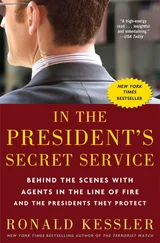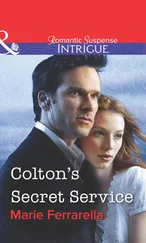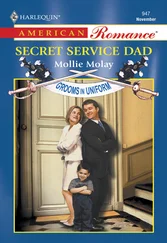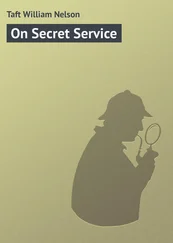William Fitzpatrick - Secret Service Under Pitt
Здесь есть возможность читать онлайн «William Fitzpatrick - Secret Service Under Pitt» — ознакомительный отрывок электронной книги совершенно бесплатно, а после прочтения отрывка купить полную версию. В некоторых случаях можно слушать аудио, скачать через торрент в формате fb2 и присутствует краткое содержание. Жанр: foreign_antique, foreign_prose, на английском языке. Описание произведения, (предисловие) а так же отзывы посетителей доступны на портале библиотеки ЛибКат.
- Название:Secret Service Under Pitt
- Автор:
- Жанр:
- Год:неизвестен
- ISBN:нет данных
- Рейтинг книги:5 / 5. Голосов: 1
-
Избранное:Добавить в избранное
- Отзывы:
-
Ваша оценка:
- 100
- 1
- 2
- 3
- 4
- 5
Secret Service Under Pitt: краткое содержание, описание и аннотация
Предлагаем к чтению аннотацию, описание, краткое содержание или предисловие (зависит от того, что написал сам автор книги «Secret Service Under Pitt»). Если вы не нашли необходимую информацию о книге — напишите в комментариях, мы постараемся отыскать её.
Secret Service Under Pitt — читать онлайн ознакомительный отрывок
Ниже представлен текст книги, разбитый по страницам. Система сохранения места последней прочитанной страницы, позволяет с удобством читать онлайн бесплатно книгу «Secret Service Under Pitt», без необходимости каждый раз заново искать на чём Вы остановились. Поставьте закладку, и сможете в любой момент перейти на страницу, на которой закончили чтение.
Интервал:
Закладка:
William John Fitzpatrick
Secret Service Under Pitt
PREFACE
These rough notes – begun long ago and continued at slow intervals – were put aside during the onerous task of editing for Mr. Murray the O'Connell Correspondence. The recent publication of Mr. Lecky's final volumes, awakening by their grasp a fixed interest in pre-Union times, and confirming much that by circumstantial evidence I had sought to establish, affords a reason, perhaps, that my later researches in the same field ought not to be wholly lost. Mr. Lecky's kindness in frequently quoting me 1 1 Vide England in the Eighteenth Century , vii. 211; viii. 42-44, 45, 191, 240, etc.
merits grateful acknowledgment, not less than his recognition of some things that I brought to light as explanatory of points to which the State Papers afford no clue. This and other circumstances encourage me in offering more.
My sole purpose at the outset was to expose a well-cloaked case of long-continued betrayal by one of whom Mr. Froude confesses that all efforts to identify had failed; 2 2 See Froude's English in Ireland , vol. iii. sec. vi.
but afterwards it seemed desirable to disclose to the reader a wider knowledge of an exciting time. 3 3 I have been further encouraged by the very favourable judgment of an acute critic, the late Mr. Hepworth Dixon, regarding a book of mine, written on the same lines as the present. See Athenæum , No. 1649, pp. 744 et seq.
In various instances a veil will be found lifted, or a visor unlocked, revealing features which may prove a surprise. Nor is the story without a moral. The organisers of illegal societies will see that, in spite of the apparent secrecy and ingenuity of their system, informers sit with them at the same council-board and dinner-table, ready at any moment to sell their blood; and that the wider the ramifications of conspiracy, the greater becomes the certainty of detection.
It may be that some of these researches are more likely to interest and assist students of the history of the time than to prove pleasant reading for those who take up a book merely for enjoyment. Yet if there is truth in the axiom that men who write with ease are read with difficulty, and vice versâ , these chapters ought to find readers. Every page had its hard work. Tantalising delays attended at times the search for some missing – but finally discovered – link. Indeed, volumes of popular reading, written currente calamo , might have been thrown off for a tithe of the trouble.
'If the power to do hard work is not talent,' writes Garfield, 'it is the best possible substitute for it. Things don't turn up in this world until somebody turns them up.' Readers who, thanks to Froude and Lecky, have been interested by glimpses of men in startling attitudes, would naturally like to learn the curious sequel of their subsequent history. This I have done my best to furnish. The present volume is humbly offered as a companion to the two great works just alluded to. But it will also prove useful to readers of the Wellington, Castlereagh, Cornwallis, and Colchester Correspondence. These books abound in passages which, without explanation, are unintelligible. The matter now presented forms but a small part of the notes I have made with the same end.
A word as regards some of the later sources of my information. The Pelham MSS. were not accessible when Mr. Froude wrote. Thomas Pelham, second Earl of Chichester, was Irish Secretary from 1795 to 1798, but his correspondence until 1826 deals largely with Ireland, and I have read as much of it as would load a float. Another mine was found in the papers, ranging from 1795 to 1805, which filled two iron-clamped chests in Dublin Castle, guarded with the Government seal and bearing the words 'Secret and Confidential: Not to be Opened.' These chests were for a long time familiar objects exteriorly, and when it was at last permitted to disturb the rust of lock and hinge, peculiar interest attended the exploration. Among the contents were 136 letters from Francis Higgins, substantially supporting all that I had ventured to say twenty years before in the book which claimed to portray his career. But neither the Pelham Papers in London nor the archives at Dublin Castle reveal the great secret to which Mr. Froude points.
That so many documents have been preserved is fortunate. Mr. Ross, in his preface to the Cornwallis Correspondence, laments that 'the Duke of Portland, Lord Chancellor Clare, Mr. Wickham, Mr. King, Sir H. Taylor, Sir E. Littlehales, Mr. Marsden, and indeed almost all the persons officially concerned, appear to have destroyed the whole of their papers.' He adds: 'The destruction of so many valuable documents respecting important transactions cannot but be regarded as a serious loss to the political history of these times.'
I have freely used the Registry of Deeds Office, Dublin – a department peculiar to Ireland. Originating in penal times, its object was to trace any property acquired by Papists – such being liable to 'discovery and forfeiture.' This office served as a valuable curb in the hands of the oppressor, and ought to prove a not less useful aid to historic inquirers; but, hitherto, it has been unconsulted for such purposes. Few unless legal men can pursue the complicated references and searches, and – unlike the Record Office – fees attend almost every stage of the inquiry. Here things stranger than fiction nestle; while the genealogist will find it an inexhaustible store.
I have to thank the Right Hon. the O'Conor Don, D.L.; Sir William H. Cope, Bart.; Mrs. John Philpot Curran; Daniel O'Connell, Esq., D.L.; D. Coffey, Esq.; Jeremiah Leyne, Esq.; the late Lord Donoughmore, and the late Mr. Justice Hayes for the communication of manuscripts from the archives of their respective houses. The Rev. Samuel Haughton, F.T.C.D., kindly copied for me some memoranda made in 1798 by the Rev. John Barrett, Vice-Provost T.C.D., regarding students of alleged rebel leanings. Sir Charles Russell, when member for Dundalk, obligingly made inquiries concerning Samuel Turner; Mr. Lecky transcribed for me a curious paper concerning Aherne, the rebel envoy in France, and has been otherwise kind. My indebtedness to Sir Bernard Burke, Keeper of the Records, Dublin Castle, dates from the year 1855.
The late Brother Luke Cullen, a Carmelite monk, left at his death a vast quantity of papers throwing light on the period of the Rebellion. No writer but myself has ever had the use of these papers, and I beg to thank the Superior of the Order to which Mr. Cullen belonged for having, some years ago, placed them in my hands.
The array of notes and authorities on every page is not the best way to please an artistic eye; but in a book of this sort they are indispensable and would be certainly expected from the oldest living contributor to 'Notes and Queries.'
While there are many persons who enjoy a fox hunt, there are others would vote it a bore; and readers of this mind had better, perhaps, pass over the various stages of my chase after Samuel Turner, and come to something that may suit them better.
49 Fitzwilliam Square, Dublin:
New Year's Day, 1892.
CHAPTER I
A MYSTERIOUS VISITOR
It is now some years since Mr. Froude invested with new interest the Romance of Rebellion. Perhaps the most curious of the episodes disclosed by him is that where, after describing the plans and organisation of the United Irishmen, he proceeds to notice a sensational case of betrayal. 4 4 The English in Ireland (Nov. 1797), iii. 278.
An instance has now to be related [he writes] remarkable for the ingenious perfidy with which it was attended, for the mystery which still attaches to the principal performer, and for his connection with the fortunes and fate of Lord Edward Fitzgerald.
Читать дальшеИнтервал:
Закладка:
Похожие книги на «Secret Service Under Pitt»
Представляем Вашему вниманию похожие книги на «Secret Service Under Pitt» списком для выбора. Мы отобрали схожую по названию и смыслу литературу в надежде предоставить читателям больше вариантов отыскать новые, интересные, ещё непрочитанные произведения.
Обсуждение, отзывы о книге «Secret Service Under Pitt» и просто собственные мнения читателей. Оставьте ваши комментарии, напишите, что Вы думаете о произведении, его смысле или главных героях. Укажите что конкретно понравилось, а что нет, и почему Вы так считаете.












